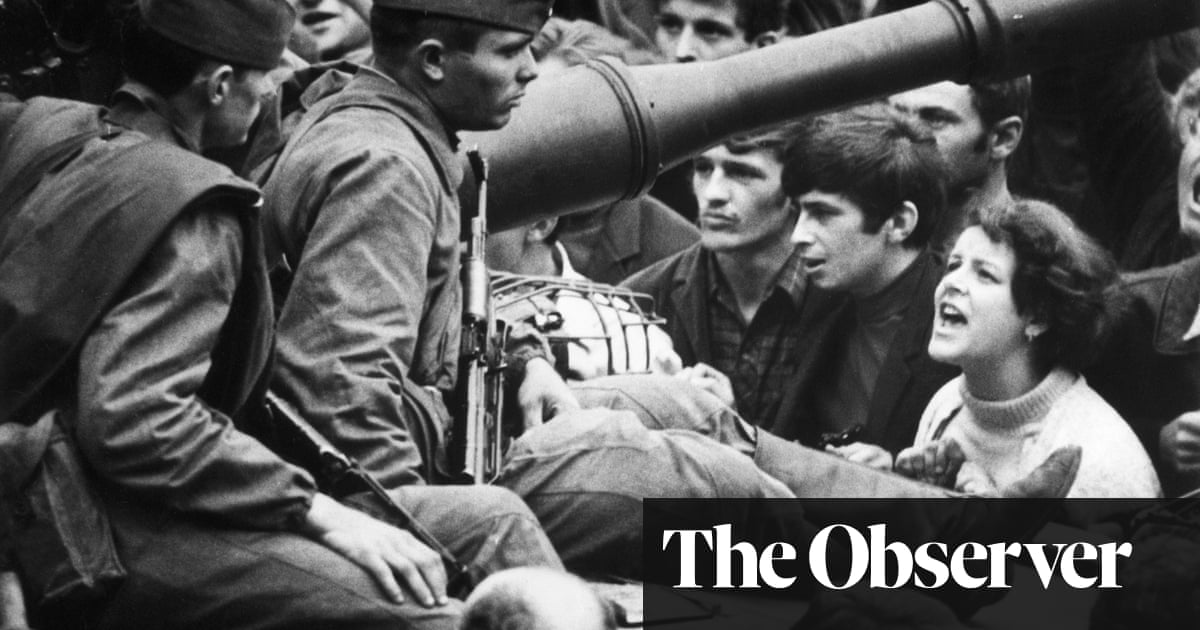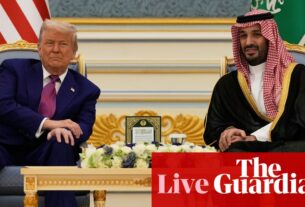During the spring of 1968, as revolutionary sentiment began to grow in communist Czechoslovakia, a group of friendly foreigners began arriving in Prague, on flights from Helsinki and East Berlin, or by car from West Germany.
Among them were 11 western European men, a Swiss woman named Maria Weber and a Lebanese carpet dealer called Oganes Sarajian. They were all supporters of what would become known as the Prague Spring, an ultimately doomed attempt to build a more liberal and free version of socialism and escape from Moscow’s suffocating embrace. Many of the visitors sought to get close to the movement’s leading lights, offering support in the battle to reform communist rule.
But these visitors were not what they seemed. They were spies from the KGB’s “illegals” programme – Soviet citizens who spent years training to be able to pose convincingly as westerners. Previously, illegals had been used to burrow into western societies and ferret out secrets for Moscow. But now the KGB was terrified that the Prague movement could end Soviet influence in the country, and decided for the first time to deploy its most prized spies inside the eastern bloc, in a mission called Operation Progress. To this day, Russia’s intelligence services have never admitted it took place.
Unpublished documents about the mission, along with interviews with participants, shed new light on how Moscow used its spies to keep tabs on reformers in Prague: informing on its leaders, planting fake evidence, and in one case getting a man who planned a dramatic self-immolation as protest committed to a psychiatric institution before he could carry out the deed.
The Prague Spring, which was ultimately crushed by a massive Soviet invasion in August 1968, was a reflection of a huge desire for change in Czechoslovak society. The reform movement was supported by local Communist party leader Alexander Dubček, who coined the term “socialism with a human face”, but it was also a grassroots movement, as Prague became the most buzzing city in the eastern bloc.
“Blue jeans and long hair are everywhere,” wrote one American correspondent at the time. Students from western Europe travelled to Prague, where they sang songs, strummed guitars and smoked joints with their new friends.
The openness terrified the Soviet leader Leonid Brezhnev and his KGB chief, Yuri Andropov, but in the openness Andropov also saw an opportunity for his spies to infiltrate. They could easily pass through the liberal Czechoslovak border regime with their fake western passports.
Five of the new arrivals were told to visit restaurants, museums, galleries and hotels and find opposition-minded Czechs. If necessary they could pay for useful political information, gently hinting that the money might be coming from western intelligence.
Some were tasked with befriending Czech newspaper editors and goading them into printing anti-Soviet statements to further escalate tensions. Others buried a fake cache of American weapons to “prove” that the reform movement was backed by the United States.
In 1969, as the Soviet Union continued to crack down on the reform movement post-invasion, more illegals were able to infiltrate. One, Yuri Linov, travelled to Prague posing as Austrian businessman Karl-Bernd Motl. Before long he was socialising in bars with student leaders and progressive journalists from state television, he recalled. In the nights he drank “a river of cheap red wine” with the protesters; in the mornings he wrote up reports about their plans and passed them over to his handler.
The spies were handled on the ground by Dmitry Vetrov, a lumbering giant of a man in his early 50s, who brushed off any doubts the KGB spies might have had about informing on idealistic young people who simply wanted to reform communism.
Vetrov admonished Linov and other illegals for thinking too much. He liked to recall an operation he had apparently taken part in, to neutralise a dissident in Berlin, in which he went in disguised as a removals man, knocked the target unconscious, then rolled him up in a carpet and sent him back to the Soviet Union. “Carpet. Plane. Siberia,” he repeated, to emphasise that he believed the dissidents in Czechoslovakia should be treated the same way.
Among Linov’s new circle of friends was Jan Křížek, a tall, hard-drinking 25-year-old with a mop of unkempt blond hair. Křížek was obsessed with Jan Palach, a student who had killed himself by self-immolation and become a hero of the resistance. He told Linov he planned to set himself on fire on 21 August to mark the first anniversary of the Soviet invasion.
“Palach is a Czech hero now, everyone knows his name, and soon everyone will know Křížek too,” he boasted. Linov reported the plans to Vetrov, who later told him Křížek had been detained and committed to a psychiatric institution.
Operation Progress was first revealed in 1999, when the historian Christopher Andrew released a book based on copies of KGB files made by the dissident archivist Vasily Mitrokhin, who defected to Britain in 1992. But Mitrokhin’s original files, now open to the public in Cambridge, contain many more revelations, about the Prague Spring and the later use of illegals in the Soviet bloc.
Andropov was so pleased with how Operation Progress had helped the Soviets manage dissent in Prague that he expanded it to cover the whole socialist bloc, where short-term missions continued for the next two decades.
In Hungary, the KGB was obsessed with supposed “Zionist” influence among the party and intellectual elite. In Yugoslavia, illegals travelled to Kosovo to investigate tension between Serbs and Albanians. In Poland, they took an interest in the Catholic church, attempting to get close to several influential religious figures, including the circle of Karol Wojtyła, archbishop of Kraków, who would later become Pope John Paul II.
Eventually, the KGB even began using illegals inside the Soviet Union, posing as western provocateurs to test the loyalty of suspected dissidents.
Russia has used illegals since the earliest days of Soviet power a century ago, and continues to infiltrate them into the west today.
Vladimir Putin has spoken on numerous occasions about their great achievements over the decades, but there is no place in this narrative for their work against dissidents inside the Soviet bloc.
Instead, they are portrayed as heroic warriors, uncovering secrets in the west to help the motherland.
“Illegals are built in a particular way, with strong morals and a firm character,” said Putin in 2017. “We are proud of them.”
The Illegals: Russia’s Most Audacious Spies and the Plot to Infiltrate the West by Shaun Walker, is out now (Profile Books, £22; Knopf in the US). To support the Guardian and Observer, order your copy at guardianbookshop.com. Delivery charges may apply.



